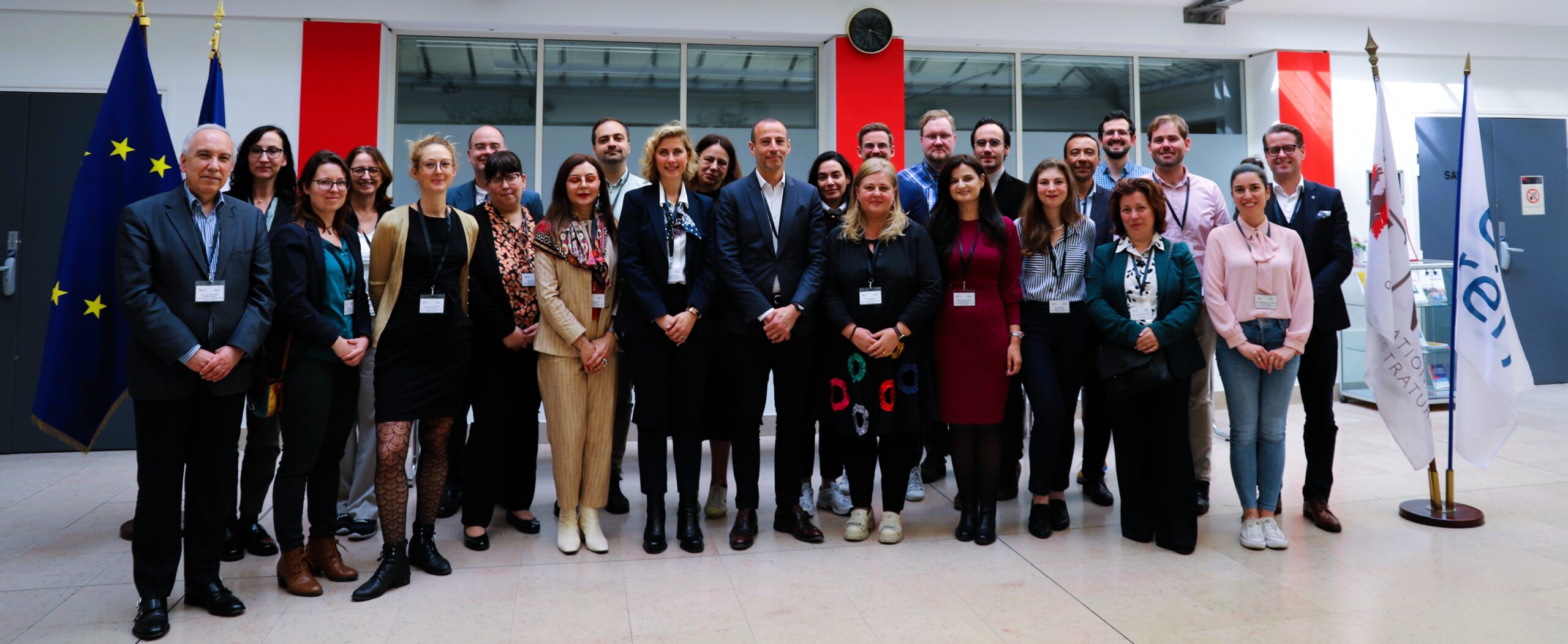The European Judicial Training Network (EJTN) successfully conducted its first face-to-face Working Group on Digitalisation meeting on April 15th and 16th, 2024, hosted by the École Nationale de la Magistrature (ENM) in Paris, France. This milestone event marked a crucial step in activity planning to advance the judiciary’s digital transformation across Europe.
The hybrid meeting was opened by the EJTN Secretary General, Ms. Ingrid Derveaux, and the Convener of the Working Group, Mr. Haffide Boulakras from ENM.
Over the course of two days, participants engaged in a rich dialogue, exploring innovative digital solutions to enhance judicial training and court procedures.
Key outcomes from the meeting included the approval of new strategic initiatives aimed at integrating cutting-edge digital tools, practical applications, and best practices of Artificial Intelligence (AI) and e-learning platforms across different countries and judicial processes. This includes a groundbreaking collaboration with UNESCO to offer a specialised course on digital tools for EJTN members, highlighting the network’s commitment to continuous learning and adaptation.
Significant decisions from the meeting included the launch of several new projects for 2024 and 2025, such as:
- An online training platform to broaden access to digital education for judiciary members.
- The development of a digital culture program, aimed at issuing a ‘digital passport’ to certify digital competencies at various skill levels.
- Webinars and face-to-face activities focused on EU tools for cross-border cooperation, such as e-codex, enhancing judicial cooperation across the EU.
- Video series and practical demonstration sessions on new digital tools (AI generative tools, evaluation, editing, language, LMS, and MO programs).
Further, the working group decided to create activities that reflect the daily benefits of digital tools in judicial contexts, with initiatives to share best practices and real-life applications of digital tools in courtrooms and judicial training. The members highlighted the potential of AI in judicial cases, albeit with careful consideration of ethical boundaries.
This meeting also paved the way for future transversal cooperation among various EJTN working groups in the field of digitalisation, fostering a holistic approach to activities provided by the EJTN training scheme.
The EJTN’s commitment to supporting the digitalisation of justice is not only a response to evolving technological landscapes but also a proactive effort to equip European judiciaries with the tools necessary for modern governance. The initiatives endorsed in this meeting are expected to significantly enhance the efficiency, accessibility, and transparency of judicial processes across Europe.




